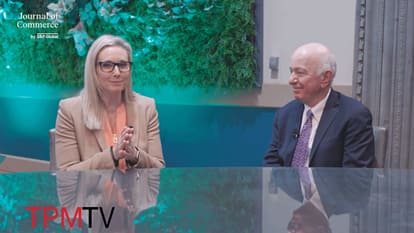- Program
- Speakers
- Who's Attending
- TPM Community
- Partners
- Media

TPM TV
Episodes of exclusive TPM content featuring interviews of key stakeholders and attendees.
WATCH NOW - About

About TPM
The must-attend conference for the trans-Pacific and global container shipping and logistics community
LEARN ABOUT TPM - FAQ's
- Get Updates
- Register
REGISTRATION NOW OPEN
WHO'S ATTENDEDING TPM25?See the companies that are attending
TPM INSIGHTS- Supply chain market insights and analysis
TPM25 - BE A PARTNER- Check out the line up
{
"dots": false,
"autoplay": true,
"autoplaySpeed": 8000
}
